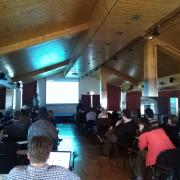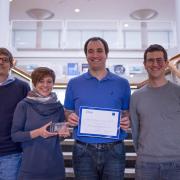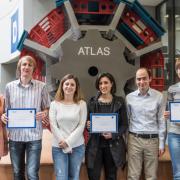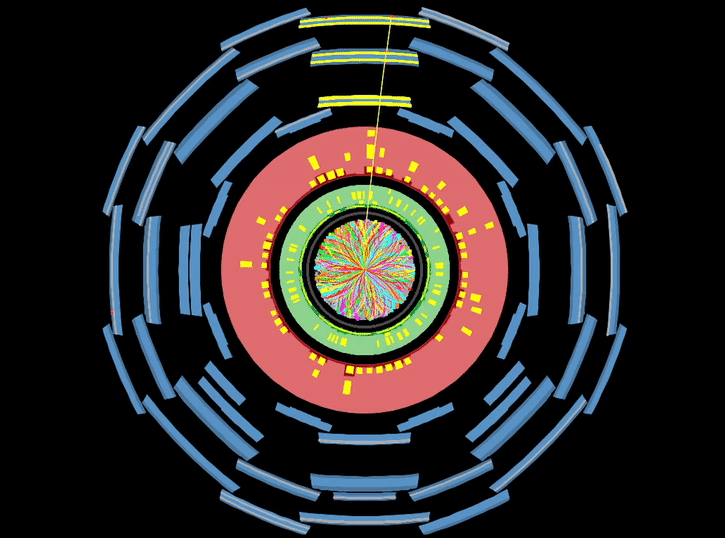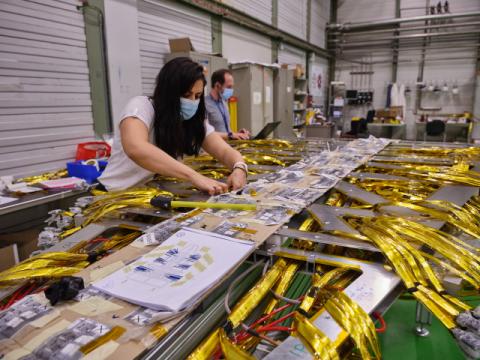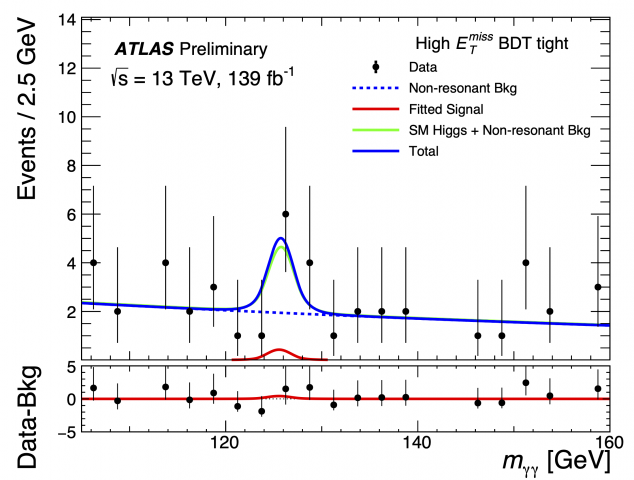Access to Collaboration Site and Physics Results

The management of the ATLAS experiment begins a new term this Spring, with Spokesperson Karl Jakobs (University of Freiburg) continuing to steer the collaboration through Long Shutdown 2 to the start of Run 3 of the Large Hadron Collider (LHC).
Jakobs is supported by a cabinet of key members to help oversee all aspects of the collaboration. Continuing on in their management roles are Deputy Spokesperson Andreas Hoecker (CERN) and Technical Coordinator Ludovico Pontecorvo (CERN). Joining the team this term are Deputy Spokesperson Manuella Vincter (Carleton University), Resource Coordinator David Francis (CERN), and Upgrade Coordinator Francesco Lanni (Brookhaven National Laboratory).
Over the course of their two-year term, the ATLAS Collaboration will continue physics analysis at full pace – with researchers combing through the vast collection of data gathered during Run 2. “We have already seen the release of a first set of results exploiting the full Run-2 dataset,” says Jakobs. “Further analyses are underway, which will deepen our understanding of particle physics at the energy frontier.”
In parallel, the ATLAS Collaboration is upgrading and consolidating the experiment in preparation for Run 3. These “Phase-I” upgrades include the refurbishment of key electronics, the maintenance of various detector components and – critically – the installation of new detectors. Ensuring the smooth, on-time completion of these works is a key objective for the entire collaboration over the next two years.
While work underground is ongoing, teams are also developing much larger “Phase-II” upgrades for the High-Luminosity LHC (HL-LHC) – a massive endeavour that will require the complete redesign and construction of specific ATLAS sub-detectors. “The Phase-II upgrades will allow ATLAS to maintain its excellent performance also under the challenging pileup conditions during the high-luminosity phase of the LHC,” says Jakobs. “Although the state-of-the art detectors won’t be installed until the mid-2020s, significant effort is required to keep the design, testing and construction of each project on schedule.”
Keeping all of these plans on track will be a major undertaking – but fortunately, ATLAS Management is building on a stable foundation. “We would like to thank Isabelle Wingerter-Seez (Annecy LAPP), Fido Dittus (CERN) and Kevin Einsweiler (Berkeley LBNL) who have stepped down from their management roles this term,” concludes Jakobs. “Their huge contributions were instrumental in leading the collaboration to where we are today, and we look forward to their continued support of ATLAS.”
Meet the new members of ATLAS Management
Manuella Vincter (Deputy Spokesperson)

Manuella Vincter is a Professor of Physics at Carleton University who has been a member of the ATLAS experiment since 1998. She obtained her PhD in particle physics at the University of Victoria in British Columbia (Canada) in 1996 and joined Carleton University in Ottawa (Canada) in 2004.
Vincter’s primary research focus on the ATLAS experiment has been the identification and reconstruction of electrons, particularly in the decays of the carriers of the fundamental weak force, the W and Z bosons. W and Z bosons appear in final states of many physics signatures, either as a significant background which must be well measured and subtracted or as genuine final states of very exciting physics processes.
As Deputy Spokesperson, Vincter ensures the quality of the data for use in physics analyses. She also works with the ATLAS speakers’ committee to select speakers at international conferences, and interacts with the team leaders of the ATLAS institutions and ATLAS Project Leaders/Activity Coordinators for the proper implementation of the task-sharing responsibilities.
David Francis (Resource Coordinator)

David Francis is a CERN senior physicist and has been a member of the ATLAS Collaboration since 1996. Prior to this he spent six years at the University of Liverpool (UK) that resulted in him obtaining a PhD in particle physics in 1988. Francis joined CERN in 1996, following several equally enjoyable and formative years as a postdoctoral researcher.
Since joining the ATLAS experiment, Francis has worked on the Trigger/DAQ system, from conception and R&D, through design and deployment to commissioning and operations. Francis had the pleasure of being the Trigger/DAQ Project Leader for eight years, during which time one of his responsibilities was coordinating the work on the Trigger/DAQ Upgrade proposals, some of which are now being deployed in “Phase-I”.
As Resource Coordinator, Francis monitors and manages the financial and human resources of the collaboration. On these matters, Francis interacts with the CERN Management, National Contact Physicists, team leaders of the ATLAS Institutions, ATLAS Project Leaders and Activity Coordinators.
Francesco Lanni (Upgrade Coordinator)
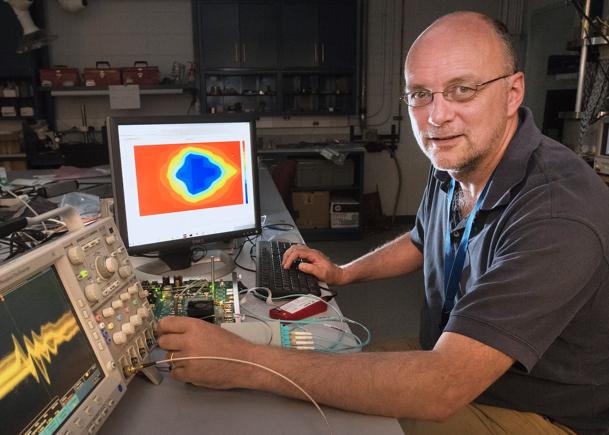
Francesco Lanni is a senior scientist at Brookhaven National Laboratory (USA). He obtained his PhD in particle physics from the University of Parma (Italy) in 1995, and was a postdoctoral researcher at the National Institute for Nuclear Physics in Milan (Italy) from 1995 to 1998. Lanni joined BNL in 1998, beginning his collaboration with ATLAS in the Liquid Argon calorimeter group.
Prior to taking on the role of ATLAS Upgrade Coordinator, Lanni coordinated the efforts to upgrade the ATLAS Liquid Argon calorimeter from 2004 throughout 2015, and led the upgrades of the Trigger/DAQ for HL-LHC from September 2016 until February 2019. Lanni also contributed to the overall upgrade of the ATLAS experiment, serving on the upgrade steering committee since 2004.
As Upgrade Coordinator, Lanni is responsible for the oversight and monitoring of the ATLAS upgrades, ensuring the programme is coherent, technically sound and well-matched to the physics goals of the ATLAS Collaboration.


